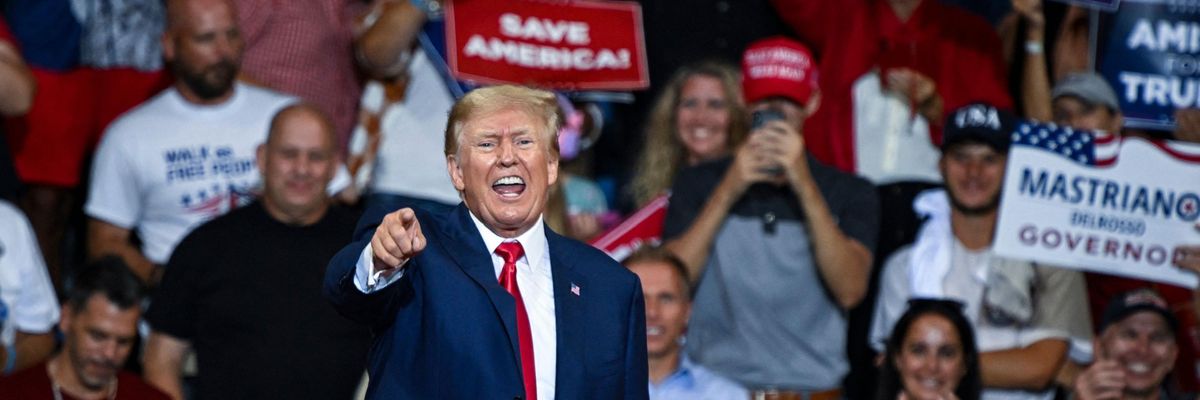Donald Trump scored at least a temporary legal victory on Friday when the U.S. Supreme Court announced it would not intervene—at least for now—to determine whether or not the former president enjoys full immunity for alleged misconduct during his time in office, including actions related to a federal indictment for his role in the January 6, 2021 Capitol insurrection.
Jack Smith, the special counsel prosecuting Trump, had requested that the nation's highest tribunal bypass a lower appeals court, telling the justices the case "presents a fundamental question at the heart of our democracy" that must be answered expeditiously.
The question at the center of the case is "whether a former president is absolutely immune from federal prosecution for crimes committed while in office or is constitutionally protected from federal prosecution when he has been impeached but not convicted before the criminal proceedings begin," said Smith.
Trump previously appealed District Judge Tanya Chutkan's ruling that rejected his claim of immunity. The former president's appeal suspended his criminal trial centered on allegations that Trump attempted to obstruct Congress and defraud the U.S. government when he led efforts to overturn President Joe Biden's 2020 election victory.
Smith told the justices that the U.S. government recognized that asking them to rule on Trump immunity was "an extraordinary request."
"This is an extraordinary case," he reasoned.
Political commentator David Rothkopf said the high court's decision "only helps Trump and hurts the country."
Smith and critics of Trump have pointed out that delaying Trump's criminal case could push the trial on his conduct past the 2024 election, potentially allowing him to order the charges be dropped if he wins the presidential race.
Journalist Mehdi Hasan said the court's refusal to intervene provides the latest proof that the Supreme Court will not "protect our rights and our democracy, and stand up to Trump should he win again next year and go full fascist."
